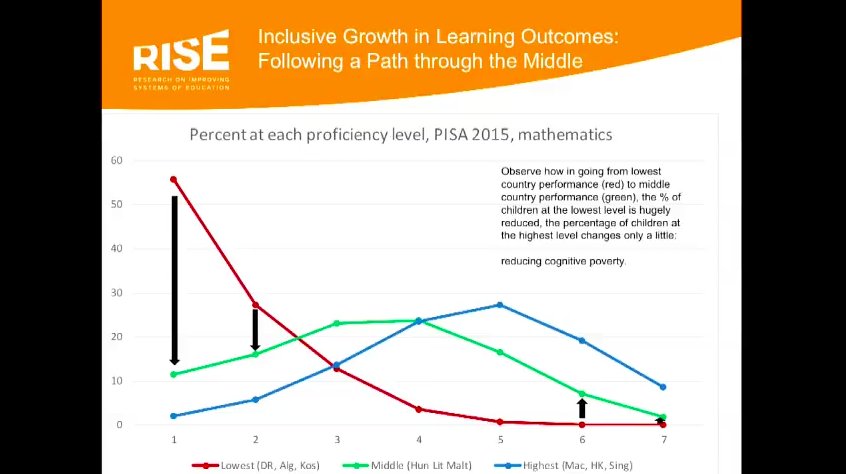Weirdly, we have the opposite problem in global education, where it is impossible to get people to focus on small incremental gains for those at the bottom of the learning distribution. Luis Crouch gave a great talk at a RISE event in Oxford yesterday in which he used the term ‘cognitive poverty’ to define those at the very bottom of the learning distribution, below a conceptually equivalent (not yet precisely measured) ‘cognitive poverty line’. Using PISA data, he documents that the big difference between the worst countries on PISA and middling countries is precisely at the bottom of the distribution - countries with better average scores don’t have high levels of very low learning (level 1 and 2 on the PISA scale), but don’t do that much better at the highest levels.

But when people try and design solutions that might help a whole bunch of people get just across that poverty line, say from level 1 or 2 to level 3 or 4 (like, say, scripted lessons), there is dramatic push-back from many in education. Basic skills aren’t enough, we can’t just define low-bar learning goals, we need to develop children holistically with creative problem solving 21st century skills and art lessons, and all children should be taught by Robin Williams from Dead Poet’s Society.
Why have global poverty advocates been so successful at re-orientating an industry, but cognitive poverty advocates so unsuccessful?
Why have global poverty advocates been so successful at re-orientating an industry, but cognitive poverty advocates so unsuccessful?
No comments:
Post a Comment